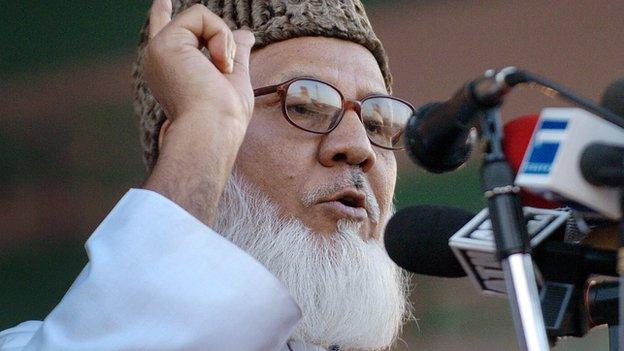Death for Bangladesh Islamist leader Mir Quasem Ali
- Published
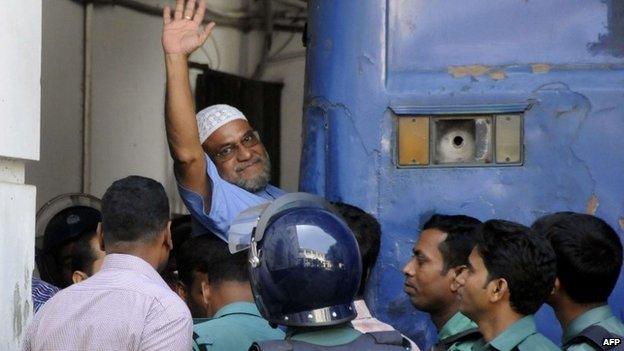
Mir Quasem Ali faces death for war crimes perpetrated during the 1971 independence war
A second leader of Bangladesh's largest Islamic party has been sentenced to death for war crimes committed during the 1971 war against Pakistan.
Media tycoon Mir Quasem Ali faced 14 charges including letting loose a "reign of terror" in Chittagong.
Eight of the charges were proven, making Mr Ali the second Jamaat-e-Islami leader to be sentenced to death in four days.
Jamaat-e-Islami has called a 24-hour national strike on Thursday to protest.
The group's supporters are currently involved in a three-day strike in protest at the sentencing of party chief Motiur Rahman Nizami, given the death penalty last Wednesday.
Three million deaths
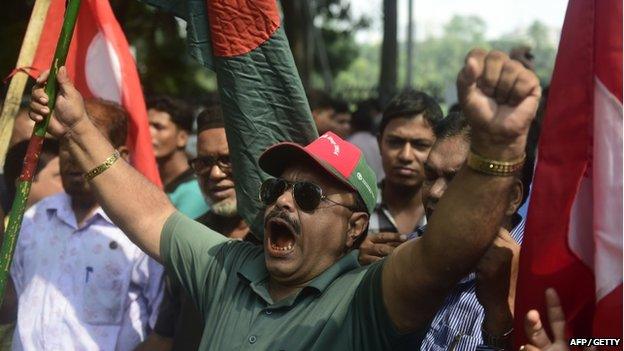
Activists who fought against Pakistan in the 1971 war celebrated Sunday's verdict
The court said that under Mr Ali's command Bangladeshi supporters of Pakistan's army "let loose a reign of terror" in Chittagong, Bangladesh's second-largest city, in 1971.
It also partially proved a further two of the charges brought against the media tycoon.
There are different estimates for the number of people killed in the nine-month Bangladeshi war of secession.
Government figures suggest as many as three million people died, while some say that figure is too high and unverifiable.
Prime Minister Sheikh Hasina set up the war crimes tribunal in 2010 to look into abuses during the independence war.
But critics of the controversial court say the government is using the tribunal to target political opponents. Human Rights Watch has previously said the court's procedures are not up to international standards.
The Awami League, which leads the current government, says it is necessary to help the country come to terms with its past.

Bangladesh independence war, 1971
Civil war erupts in Pakistan, pitting the West Pakistan army against East Pakistanis demanding autonomy and later independence
Fighting forces an estimated 10 million East Pakistani civilians to flee to India
In December, India invades East Pakistan in support of the East Pakistani people
Pakistani army surrenders at Dhaka and its army of more than 90,000 become Indian prisoners of war
East Pakistan becomes the independent country of Bangladesh on 16 December 1971
Exact number of people killed is unclear - Bangladesh says it is three million but independent researchers say it is up to 500,000 fatalities
- Published21 January 2013
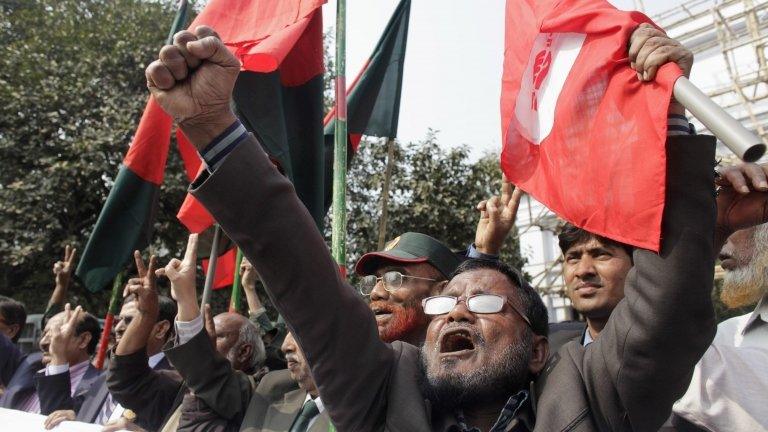
- Published12 December 2013
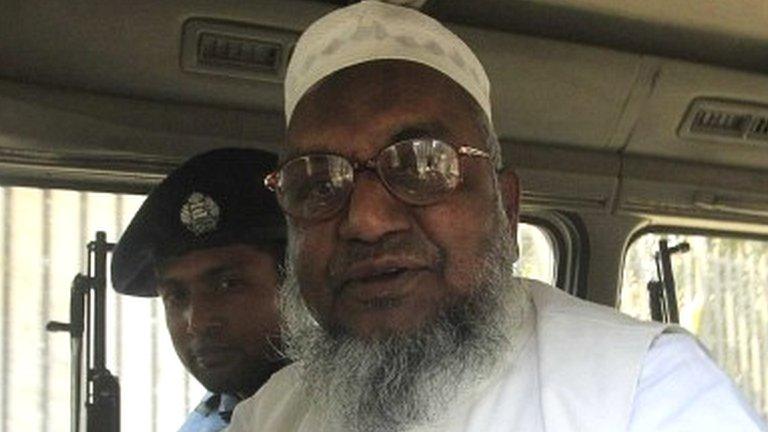
- Published13 December 2011
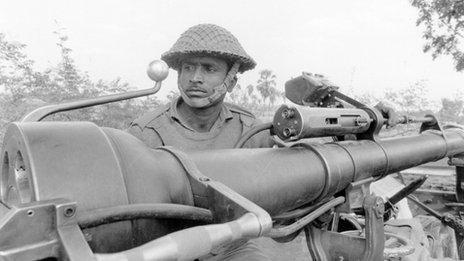
- Published29 October 2014
